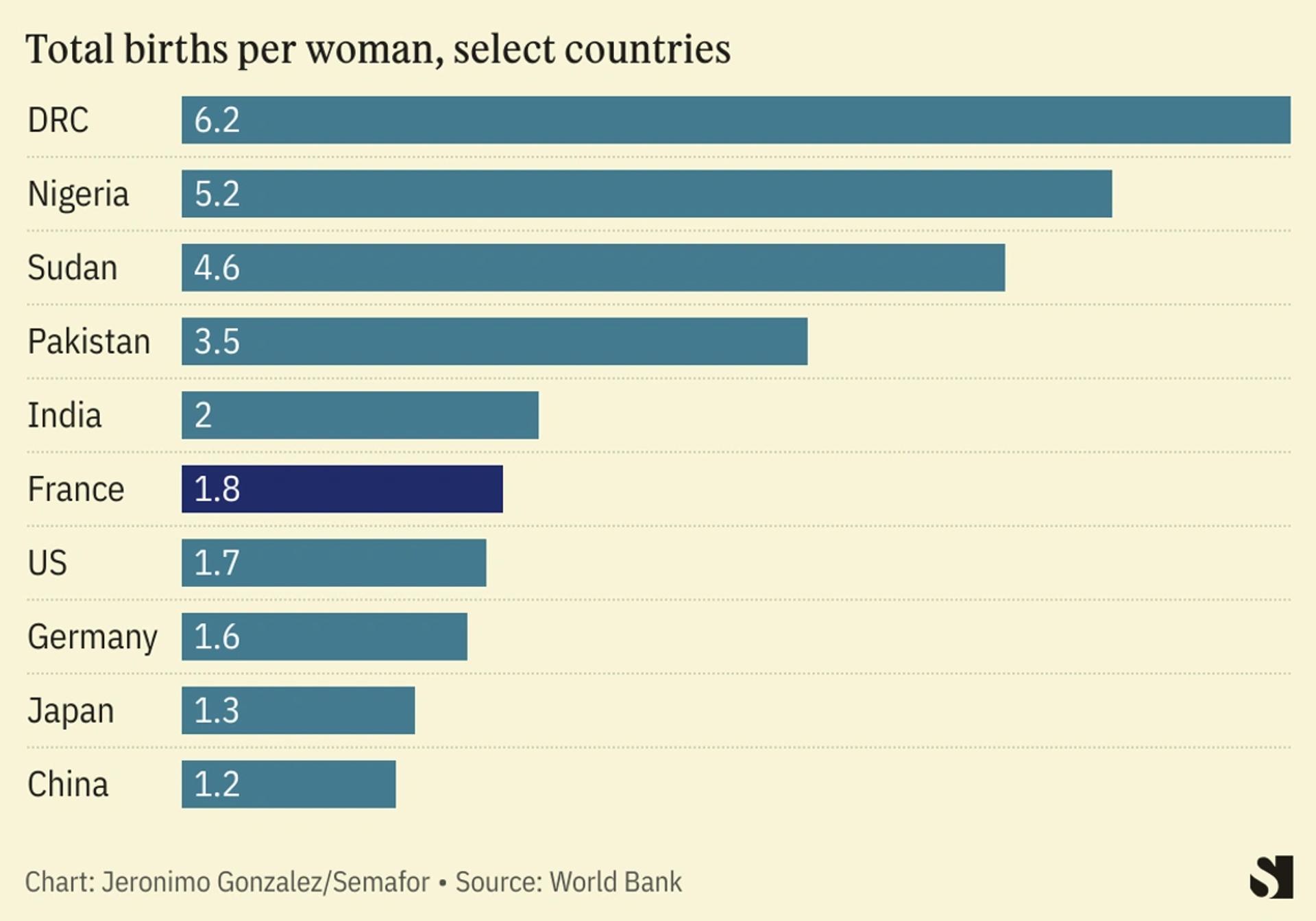The News
France’s population is older than ever, and its citizens are having fewer children. Just 678,000 babies were born in the country last year, the lowest number since 1946. The decline is primarily due to women having fewer children or none at all, according to Ined, France’s National Institute of Demographic Studies. The nation’s population still increased slightly last year, thanks to migration and a record high life expectancy of 85.7.

These trends are not unique to France — births are declining globally. In 2000, the world’s fertility rate stood at 2.7 births per woman. The “replacement rate,” at which a population is stable, is 2.1. As of 2023, the rate was 2.3 — and falling.
China announced this week that its population dropped again last year, the second time in a row, with its birth rate hitting a new low and death rate reaching the highest level since 1974. Over the last several years, nations including China, South Korea, Japan, Germany, and Russia have tried to address lagging birth rates by offering incentives for having children.
Correction: An earlier version of this story had the incorrect number of babies born in France in 2023. The number is 678,000.
SIGNALS
Global fertility drops could impact the economy
The implications of a dropping global birth rate include “higher taxes, later retirements, lower real returns for savers and, possibly, government budget crises,” The Economist wrote last year. That’s in part because as the population ages but isn’t replaced, there are fewer young people to support the world’s pensioners. In high-income countries, one factor contributing to falling fertility rates is the fact that women participate in the workforce for much of their lives. Affordable childcare allows mothers to continue their careers after giving birth, which the International Monetary Fund found also ultimately increases the number of babies who are born. The IMF recommends investing in gender equality overall to address economic pressures on women who want to start a family.
But pro-family policies don’t work in the long term
Countries with pro-family policies, like child tax credits and paid parental leave, are still seeing declining birth rates. There’s some evidence that these policies increase the number of children born when they’re first implemented, senior Center for Community Progress fellow Adam Mallach wrote, but the gains are temporary. “No matter what governments do to convince them to procreate, people around the world are having fewer and fewer kids,” Vox reported. Government efforts could shift the timing of when people chose to procreate, but “don’t ultimately affect the number of kids people have,” an expert told the outlet.
Immigration could help raise birth rates
“Only net immigration can ensure population stability or growth in the aging advanced economies of the North,” economist Giovanni Peri wrote for the IMF. Immigration not only bolsters nations against population declines, it also tends to lower their overall age. This is especially true in places where the labor market is shrinking due to an aging population. Some countries already employ this strategy. “A real bellwether for the future is South Korea,” economics professor Michael Clemens told NPR. The country, which has the lowest birthrate in the world, augments its labor market with migrant workers. But those workers often endure substandard working conditions, mistreatment, and other forms of exploitation.

